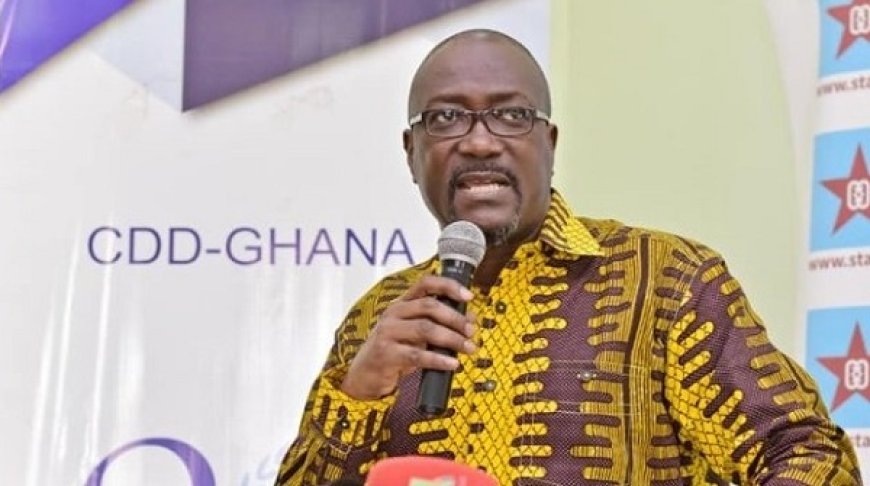Make CJ Removal Findings Public – CDD Ghana Boss Demands Judicial Transparency
By Top Knowledge Media | April 23, 2025 The Executive Director of the Ghana Center for Democratic Development (CDD-Ghana), Professor H. Kwasi Prempeh, has called for sweeping reforms in the judicial removal process, urging government and constitutional authorities to prioritize transparency, independence, and public accountability—particularly following the suspension of Chief Justice Gertrude Araba Esaaba Sackey Torkornoo.

In a strongly-worded statement, Prof. Prempeh described the current procedure outlined under Article 146 of the 1992 Constitution as flawed, lacking the transparency required to maintain public trust in the justice system.
Two Core Concerns with Article 146
Prof. Prempeh outlined two major deficiencies in the judicial removal process:
1. Secrecy of Removal Proceedings
While acknowledging the need for in-camera hearings, he insisted that the outcomes—including reasons, supporting evidence, and final decisions—must be made public.
“Even if proceedings are held privately, the findings and rationale must be disclosed. The people of Ghana deserve to understand why a Chief Justice or any superior court judge is removed—or retained,” he stated.
He emphasized that without transparency, public confidence in the judiciary risks erosion, particularly in politically sensitive cases.
“Accountability cannot be hidden behind closed doors. If we’re to uphold justice, the public must be allowed to judge for themselves whether due process was followed.”
2. Committee Composition Raises Ethical Questions
Prof. Prempeh further criticized the composition of the five-member investigative committee, especially in cases involving the Chief Justice.
“No sitting judge should serve on a committee tasked with investigating the Chief Justice. It’s a structural conflict of interest,” he argued.
He recommended that the process should instead rely on retired judges, seasoned civil servants, and neutral public officials to ensure impartiality and eliminate internal judicial bias.
A Call to Remove Presidential Influence
In a bold proposal, Prof. Prempeh also advocated for minimizing executive involvement in the removal process. According to him, the President’s role should be limited strictly to ratifying the outcome, not participating in the selection of committee members.
“Presidential neutrality is essential. The removal process should be entirely independent—both in design and implementation,” he stressed.
Context: CJ Torkornoo’s Suspension
Chief Justice Gertrude Torkornoo was suspended on April 22, 2025, by President John Dramani Mahama, following the establishment of a prima facie case based on three separate petitions filed against her.
The suspension was carried out under Article 146(6) after consultation with the Council of State. In her absence, Justice Paul Baffoe-Bonnie, the most senior member of the Supreme Court, has been appointed as Acting Chief Justice.
Although a five-member investigative committee has been formed, the lack of public information regarding the substance of the petitions and supporting evidence has generated growing concern among legal analysts, civil society groups, and the general public.
A Growing Call for Judicial Accountability
Prof. Prempeh’s critique adds to a rising chorus of voices demanding greater transparency in judicial governance. As Ghana grapples with politically charged legal proceedings, questions around accountability, due process, and the separation of powers have taken center stage.
As the case unfolds, many are watching not just the outcome—but how the process is conducted.
Stay with Top Knowledge Media Blog for exclusive updates on Ghana’s judicial affairs, constitutional reforms, and democratic governance.
What's Your Reaction?




















































































